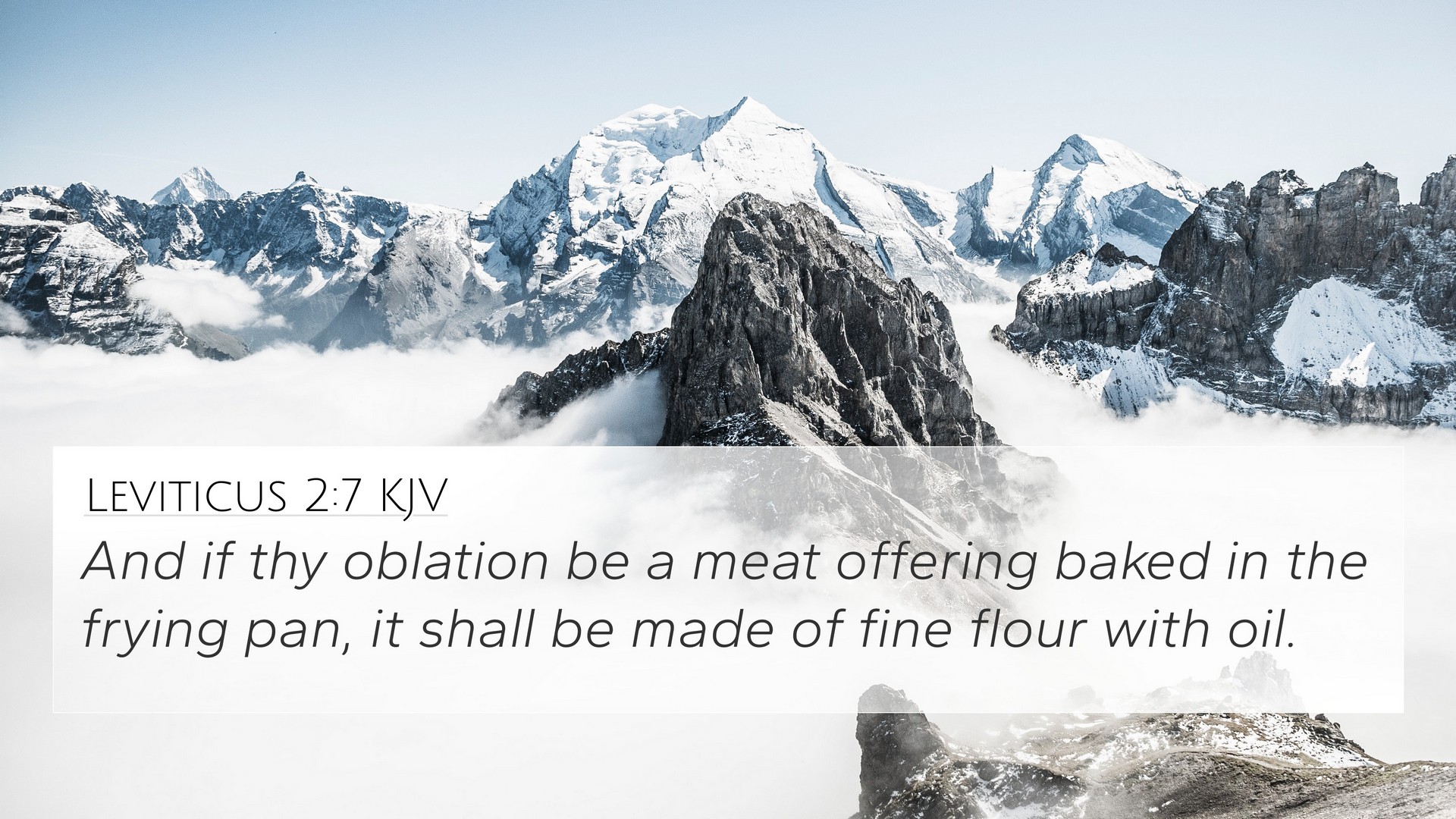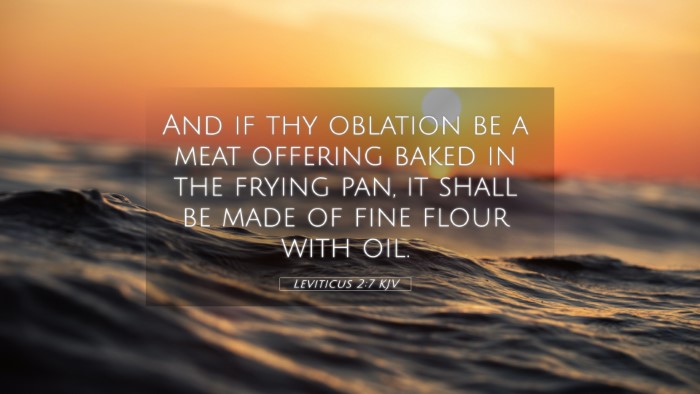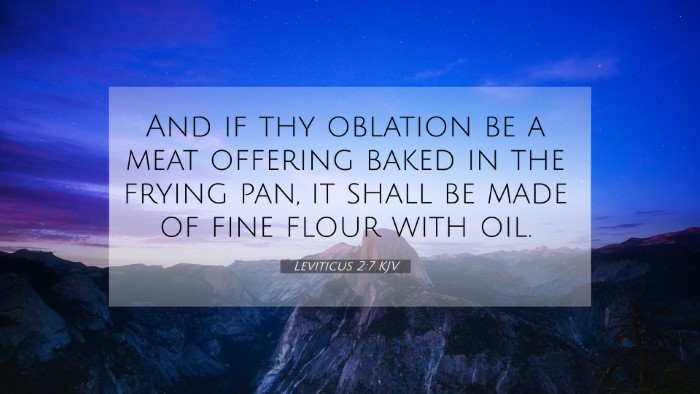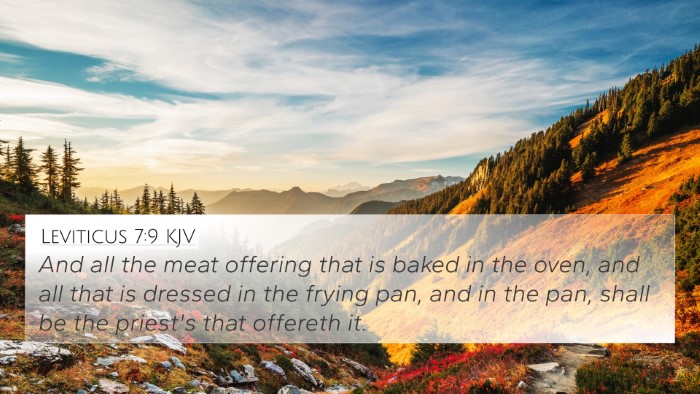Understanding Leviticus 2:7
Verse: "And if your offering is a grain offering of the pan, it shall be made of fine flour with oil; it shall be mixed with oil." (Leviticus 2:7)
Verse Explanation
The instruction in Leviticus 2:7 concerning the grain offering provides insights into the nature of offerings prescribed in the Old Testament and their significance in worship.
Contextual Overview
This verse is situated within the broader context of Leviticus, which outlines various offerings meant to facilitate the relationship between the Israelites and God. The grain offering symbolizes gratitude, acknowledgment of God's goodness, and the sustenance He provides.
Analysis and Commentary
Matthew Henry’s Commentary: Henry emphasizes that the grain offering was intended as a token of thanksgiving to God. It illustrates the idea of presenting to God the fruits of one's labor, acknowledging that all good gifts come from Him.
Albert Barnes’ Notes: Barnes elucidates that the offering contains fine flour mixed with oil, indicating purity and richness, which shows a quality of the gifts we present to God should reflect His holiness. This mixture signifies the importance of an acceptable offering as it represents the individual's effort and intention behind the worship.
Adam Clarke’s Commentary: Clarke notes that this offering is an act of devotion and is part of a larger system of offerings. He highlights the significance of oil, which in the Bible often symbolizes the Holy Spirit and the presence of God. Thus, this verse heralds both physical and spiritual nourishment.
Thematic Connections
Leviticus 2:7 resonates with several themes throughout Scripture, particularly concerning offerings and worship. Understanding how this verse connects with other parts of the Bible can enrich one's study and comprehension. Below are some Bible verse cross-references that relate to Leviticus 2:7:
- Exodus 30:23-25 - Instructions on preparing anointing oil, connecting the significance of oil.
- 1 Corinthians 10:16 - Discussing communion as participation in the body and blood of Christ, paralleling concepts of offerings.
- Hebrews 13:15 - Encouragement to offer sacrifices of praise to God, linking New Testament worship to Old Testament practices.
- Leviticus 2:1-2 - The broader context of grain offerings, underscoring their purpose in worship.
- Matthew 5:23-24 - Jesus teaches about reconciling relationships before offering, reflecting the heart behind offerings.
- James 1:17 - Acknowledgment that every good and perfect gift comes from God, emphasizing gratitude in offerings.
- Philippians 4:18 - Paul speaks of gifts as a fragrant offering, similar in spirit to the grain offering.
- Romans 12:1 - Call to present oneself as a living sacrifice, alluding to the essence of offering in worship.
Meaning and Relevance
In conclusion, Leviticus 2:7 serves not only as an instruction for the Israelites but also highlights essential principles that remain relevant in modern worship. The care in the details of offerings speaks to God’s desire for sincerity and the acknowledgement of His providence. Understanding this verse through the lens of comprehensive Bible cross-reference materials aids in grasping its significance in the tapestry of Scripture and enhances one's spiritual journey.
Conclusion
As you study Leviticus 2:7, consider using tools for Bible cross-referencing to dive deeper into its surrounding context and related themes. The insights gleaned from public domain commentaries foster a richer understanding of the Scriptures and their interconnectedness, inviting readers to reflect on their own offerings and spiritual practices today.
Additional Study Recommendations
- Explore Bible concordances to find additional cross-references that may shed light on similar themes.
- Utilize a Bible cross-reference guide for a structured approach to connecting Biblical texts.
- Engage in cross-reference Bible study methods to enrich your personal or group study time.




